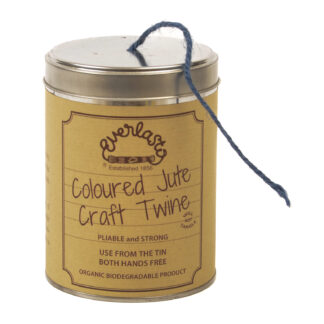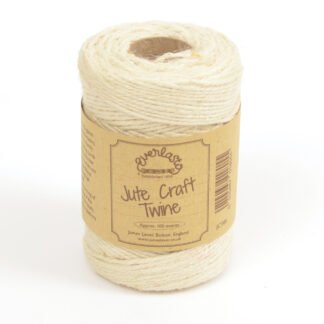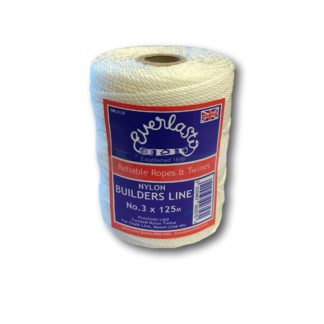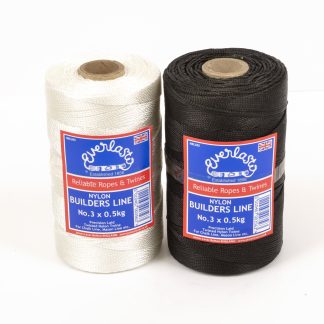Twines
Showing 13–24 of 502 results
-

5/16 Thick Natural Jute Craft Twine 3mm Approx
From £8.66 (Inc. UK VAT) Select options -

Everlasto Twine In A Tin Coloured Jute 150m Various Colours
£8.40 (Inc. UK VAT) Select options -

Almond Coloured Jute Twine
From £4.37 (Inc. UK VAT) Select options -

Apple Green Coloured Jute Twine
From £4.37 (Inc. UK VAT) Select options -

Aqua Blue Coloured Jute Twine
From £4.37 (Inc. UK VAT) Select options -

No.3 (1.5mm) Everlasto Twisted Nylon Builders Line 18M Hank
£2.83 (Inc. UK VAT) Add to basket -

No.3 (1.5mm) Everlasto Twisted Nylon Builders Line 125M Spool
£4.72 (Inc. UK VAT) Add to basket -

Everlasto Twisted Nylon Twine/Builders Line 0.5Kg Spool
From £8.48 (Inc. UK VAT) Select options -

5 X 15m Lastocard Polyethylene Builders Line Cards
£11.21 (Inc. UK VAT) Add to basket -

10 Pack – No.3 (1.5mm) Everlasto Twisted Nylon Builders Line 18M Hank
£13.70 (Inc. UK VAT) Add to basket -

Everlasto Twisted Nylon Twine/Builders Line 1Kg Spool
From £13.97 (Inc. UK VAT) Select options -

10 X 15m Lastocard Polyethylene Builders Line Cards
£18.73 (Inc. UK VAT) Add to basket
Showing 13–24 of 502 results
What’s the difference between rope and twine?
Traditional twisted rope is created by twisting many fibres together in one direction and then twisting several sets of those fibres back the other way. This is usually but not always done in a three strand twist to form a very strong and durable structure, which is why rope is used for heavy-duty applications like securing cargo, lifting items or for mooring large ships. Similarly, twine is also usually made in a cabled ‘reverse wrap’ construction but made with fewer strands. This makes twine thinner and more lightweight, so it’s generally used in smaller and more delicate applications like gardening or wrapping gifts and parcels. Twines can often also be single twist where the fibres are twisted all together once in a single direction. Ropes can also be plaited or braided, which is where the strands are interwoven round a central core like a maypole to form a plaited or braided cord. This kind of rope construction can be made extremely strong and these braided ropes may be used for high intensity applications such as climbing and marine applications. There are also hollow braid ropes such as magician’s rope which is soft and flexible.
What’s the best material for garden twine or garden string?
Ideally, you should choose natural fibres for your garden twine or garden string as they’re biodegradable, eco-friendly and better suited to the appearance of outdoor settings. Hemp twine is a fantastic choice because it’s 100% biodegradable, strong, durable and absorbent. Jute twine is another excellent option because jute fibres are also completely natural, strong and resilient. Plus, jute twine and sisal twine fibres can be grown without pesticides, so these twines are a great choice for those who are concerned about the environment.
When should you use synthetic twine?
Although synthetic twine isn’t biodegradable like natural twine, it may be a better choice if you need twine for heavy-duty or industrial applications. This is because synthetic twines like nylon twine and polypropylene twine are even stronger and more durable than natural fibre twine and they are also water resistant and resist biological attack and degradation.
Can twine be used for macramé?
Absolutely! Because twines are thinner than ropes, they’re well suited for arts and crafts and other delicate applications. Cotton is ideal for use in macrame twines as it is very soft and supple to work with, it has a nice smooth appearance and can be easily dyed in many colours. Here at Rope Source, you can choose from our wide range of macramé cord and twine, including coloured twine and even sparkle macramé twine.









